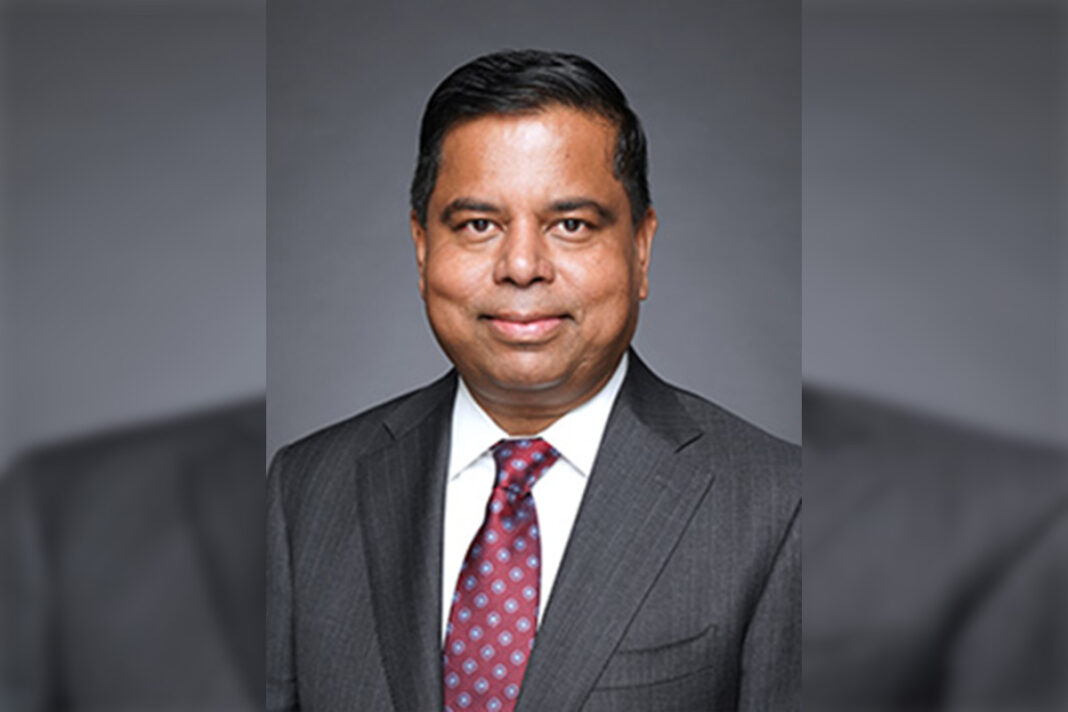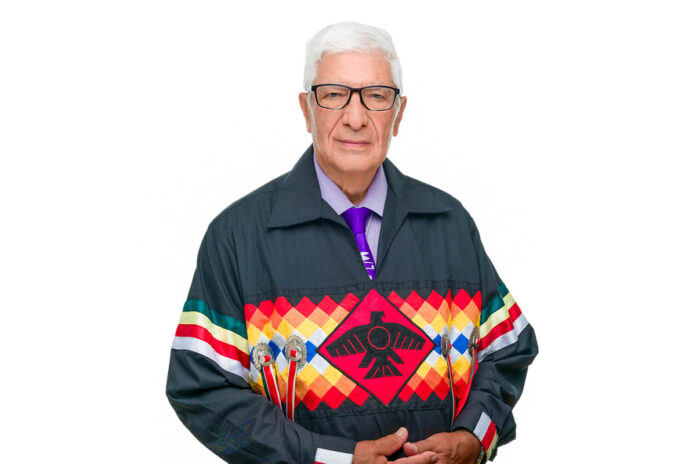AUNDECK OMNI KANING—Federal Crown Indigenous Relations Minister, the Honourable Gary Anandasangaree, sat down with The Expositor this weekend following the recent signing of an apology for the Canadian government’s mishandling of First Nations’ funds in the 1800s and his individual meetings with five Island First Nations to discuss their particular issues.
“Reconciliation is an intergenerational effort, one that will require every government henceforth to embrace,” said Minister Anandasangaree. “Our obligations are to ensure that we reset and rebuild communities and nations and this relationship—we cannot afford to go back. Reconciliation is a one-way street. As a government, since 2015, we have been relentless in moving forward on reconciliation and we will continue to do so until every young person born today on a First Nations Reserve has the outcomes of every other young person that’s born in Canada.”
As to the funding that is accompanying the settlement, Minister Anandasangaree was adamant that the monies are anything but a government handout. “These are annuities that were supposed to be going to them that were actually taken in and repurposed for infrastructure that Canada should have paid for. So, it’s a reconciliation of that.”
“I think we had a really, really good engagement with the five communities—five impacted communities,” he said. “There was some real recognition of the long road that it took for us to get here, an acknowledgment of all the people that have been involved in this including, Hardy Peltier, and his family was there as you’re aware. You know, every time we do something significant, there’s always one or two champions that have gone to the end of the Earth, trying to fight for them. Often, they are unsung heroes, they’re not people that you will see on billboards.
“I think there were a lot of good stories shared today, of people who had this journey,” he said. “The 1990s settlement with Ontario was brought up on a number of occasions by a number of people. But there’s a number of milestones that they have had including a resolution of the Robinson Huron settlement last year.”
“There are some incredible things that are happening in Manitoulin Island,” he continued, “but there’s lots of challenges, challenges that frankly are faced by many nations across Canada, including the opioid crisis, issues around policing, issues ensuring that they have land returned to them. We had some private meetings where we talked about these issues.”
“As you know, there is an infrastructure gap that government since 2015 has been trying to bridge and that’s something that is moving in the right direction, but probably not at the speed communities want to happen,” the minister continued.
The minister referenced specifically housing and schools. “While, you know, this is outside of our portfolio, it is still from a whole government approach.” He said, “These are issues that we are continuing to address. So, we have $4 billion dollars set aside in 2023, which will be flowing through very soon on Indigenous housing, on urban rural and Northern housing. There’s an additional billion dollars towards infrastructure. That’s going to flow through very soon.”
“It was really good to have Mark (Serre, Liberal MP for Nickel Belt) with me here because Mark has decades of experience in Indigenous issues,” said Minister Anandasangaree.
“I think we have to be very realistic here, right? The money that’s going are not handouts, they’re not going for nothing, they’re going because Canada has failed to live up to its obligations,” noted Minister Anandasangaree. “It’s legal obligations. Some of these settlements are driven by Court decisions that have clearly and consistently deem Canada to have failed in its fiduciary obligations. This is a result of those failures, as I commented today, the cost of not resolving these claims will continue to escalate. If we don’t have resolutions on a range of issues that are still outstanding, we will not be able to move ahead as a country. These are very important points, where we’re demonstrating our goodwill and Canada’s willingness to engage and move forward in a nation-to-nation relationship. We cannot mend these relationships without resolving some of these long outstanding issues which have had significant impact on people and communities.”
“I was in Saskatchewan and Alberta last week with $2.1 billion worth of agricultural benefit settlements,” shared the minister. “It again speaks to treaties signed with Treaty Number 3, 4, 5, 6 and 10, wherein Canada promised to provide implements and the requisite equipment for First Nations people to do farming—and we didn’t do that. The cost of that failure is what Canada is trying to catch up to today. And by no means does any of these settlements bring back what people lost, and I think we have to be very clear on that. We cannot compensate our way out of this. I mean, part of it is, the compensation is a recognition that, you know, in a monetary world we’re in today it’s a recognition of us trying to do right. But reconciliation efforts are in a respective manner by which we will engage and reset that relationship.”





